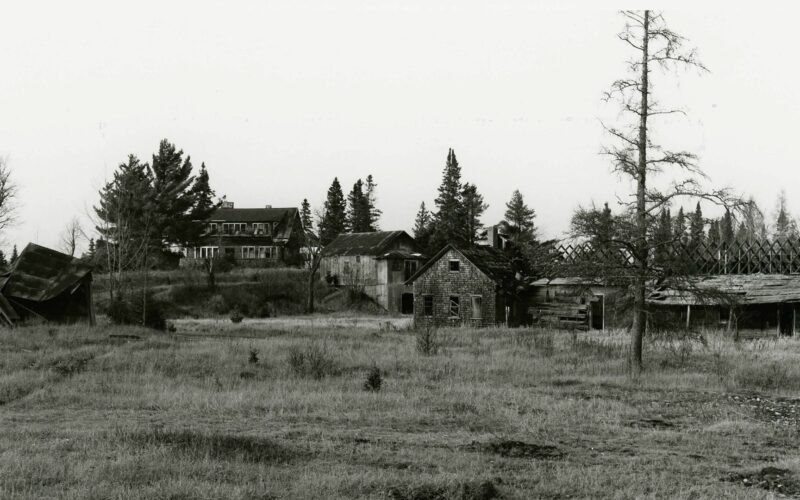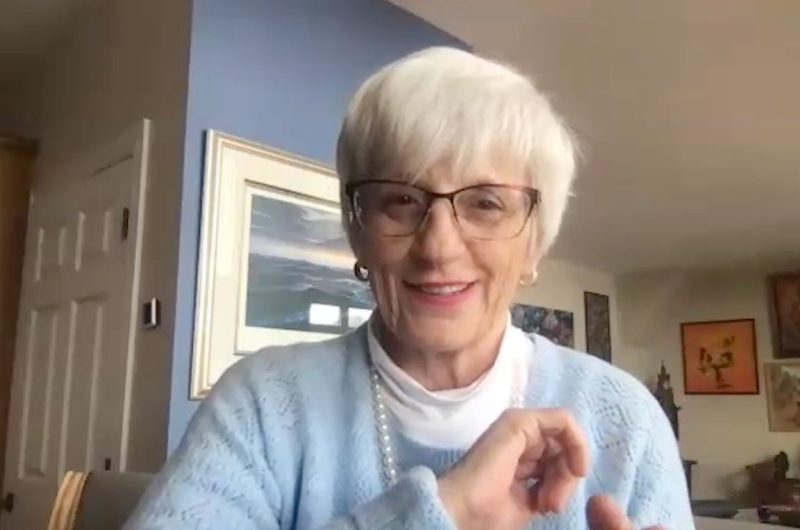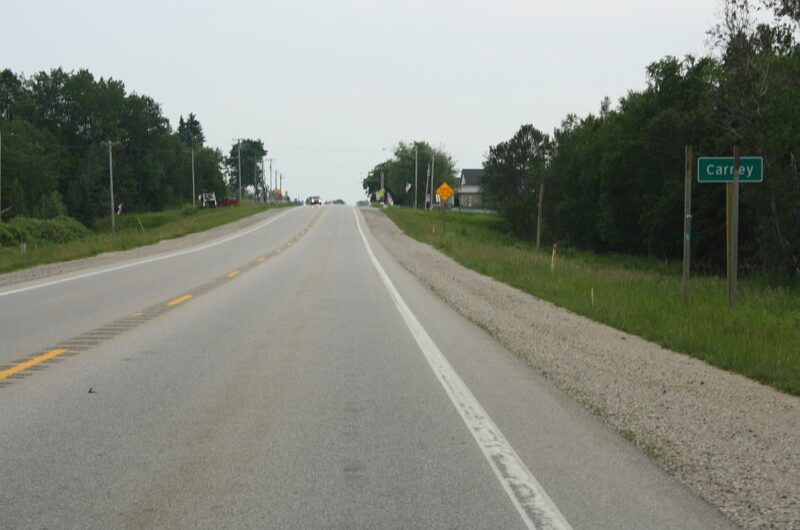Triangle Ranch: A Battle of Innovation Against the Unyielding Upper Peninsula

“Rural Voices” shares cultural, educational, economic and artistic views of people who have lived and thrived in the Upper Peninsula. Each of our authors in Rural Voices may be living here in the U.P. or living someplace around the globe, but the U.P. is an important part of who they are and what their beliefs and values are today. Rural Voices wants to share the voices of our neighbors and friends about life and experiences in the UP.
The story of Triangle Ranch (1919-1936) is both a cautionary tale and a testament to the spirit of innovation in the face of grueling hardship.
To look at the property now, located seven miles north of Amasa in Iron County, one would never guess that it was once one of the largest and most promising cattle ranches in Michigan.
Triangle Ranch was the dream of Judson Rosebush, a professor at Lawrence College in Appleton, WI who had visited the U.P. and noted the cutover country as a promising landscape for establishing a cattle empire.
Rosebush had money to invest, being husband to paper mill heiress, Barbara McNaughton.
Rosebush named Triangle Ranch for what he envisioned would be three 10,000-acre plots north of Amasa–counting his chickens before they hatched, so to speak, as the ranch never developed more than one third of the total holdings.
Rosebush spared no expense in the development. He cleared and fenced in fifteen square miles of the land and housed 1,100 head of range cattle.
He performed extensive research on the climate, soils, terrain, and potential markets. In just a few years, the ranch employed 135 people and was shipping carloads of livestock & produce.
The promising start, though, was met with one disaster after another.
One year early in the expansion of the ranch, a drought claimed the hay needed to feed the livestock and it had to be shipped in at great expense. Rosebush was undeterred, however, and decided to vary his interests, introducing Jersey cattle, poultry, and pigs to Triangle Ranch.
Later, a freak tornado destroyed four barns on the property, including a profitable two-story chicken coop. Not long after, a lightning strike led to the total loss of another huge structure used for horse rearing.
Rosebush was determined not to fold under the mounting financial pressure. In an effort to further diversify, he attempted several other enterprises including dude ranching, potato farming, maple syrup production, and even beaver farming.
The beaver farm was a monumental fiasco, and an expensive lesson in wildlife management. A structure was built to house 60-70 beavers, but no one was aware that beavers are extremely territorial and will kill each other when penned up.
In the end, the beaver farm did not produce a single pelt to bring to market.
The final dagger to the heart of Triangle Ranch was the Great Depression, and Rosebush was finally forced to accept defeat.
In 1936, the property was sold at public auction for $35,000–a far cry from the estimated $1.5 million invested by Rosebush. Today the property is privately owned, the remnants of which can be seen on Google Earth.
While Rosebush was ultimately defeated in his struggle with the unforgiving elements of the Upper Peninsula, Triangle Ranch is credited with two important innovations that are still evident to this day.
It was the first to introduce so-called “fat stock” to midwestern farmers, having proved that western cattle need not be confined to the prairies. Rosebush also instituted the selective logging system of industrial forest land that has contributed millions of dollars to the economy of Michigan.
You can learn more about Triangle Ranch and other historical oddities by following the Iron County Historical Museum on Facebook or Instagram.






An excellent piece on our UP history! Thank you for writing it.
Thankyou, It was a good story
Hey Erika, .
My name is Keith waarvik I have read your piece I liked it …I did not know a lot of that information.
I am currently living on”the ranch”573 triangle ranch road have been since 2017… Found a guy in Ontonagon log home builders and he built me a beautiful etched log cabin. I have been plowing the road 2 mi from my cabin to 141 North it’s a job all winter.. sometimes get snowed out.. but that’s what earl Gunderson told me when I bought the property off of him we had breakfast he told me his wife divorced him when he bought the ranch I imagine it must be back into 30s he has passed on since then and I talked to his son Tim from Illinois. They’re still logging on it not so much this year yet. I do believe they still have chicken farmers there although I wouldn’t try to find them you can get lost back here I have haha..
Is your place straight back off 141 ? Triangle ranch is my little heaven on earth, I literally just returned from a week of grouse & bear hunting there (9/26/21-10/3/21) today.. I would live to learn more about the place
Earl bought the ranch in the 70’s he was a mason by trade and hit it big in the stock market.
I really enjoyed this article. I had no idea the place existed.
Thanks
So there’s no way to see this? Sad how this came to b privately owned,should b open to the public,like fayette, to bad I spent lot of time n gas trying to see it. Someone on youtube did why I thought it was still public property.
My granparents were cooks for the ranch. Grandma cooked for the house and grandpa cooked for the workers. It still had to be a pretty big deal in 1947 because I know they were working there at that time. My father got his driver’s license in Crystal Falls because it was close to the ranch. They lived in Aurora WI. I know my Uncle took my mom and some kids there in the 50’s. I have a photo of their business card but this doesn’t allow for uploading. I do know that my granparents good friends worked the ranch but left to California to run the horses for I believe MGM. Any Westerns from MGM in the 50s were his horses. Their daughter married Ivan the Terrible, a somewhat famous wrestler from back then.
My father and I visited the ranch in the 1950s. At that time the building were deteriorating and there was no activity except for a corral of horses. The horses were gone at our visit but the evidence of horses were such that we knew horses were in the corral just a few days prior. The place is a historical site and should be treated as such.
I am interested in buying property on the triangle ranch. I was trying to find any info as to the sale of what’s left. It would be great to hear from someone.
My Grand Parents and Great Grand Parents worked there until the mid 1940’s then, moved to the lower peninsula. Would like to visit the area.
My grandparents & father worked there at the beginning..not sure of the dates. Miles Sommers, Florence Sommers & my father Robert Sommers came from Colorado to run the cattle ranch. My mother Doris Andersen Sommers met my dad in Amasa. They later moved to Kalamazoo to run the Upjohn farm in Richland, Michigan.
Enjoyed this article very much. Thank you!
My mother lived on the ranch when she was a little girl and my grandmother also cooked for the workers and then later she cooked for the Rosebush in Appleton
Who owns the property where the managers house once was?